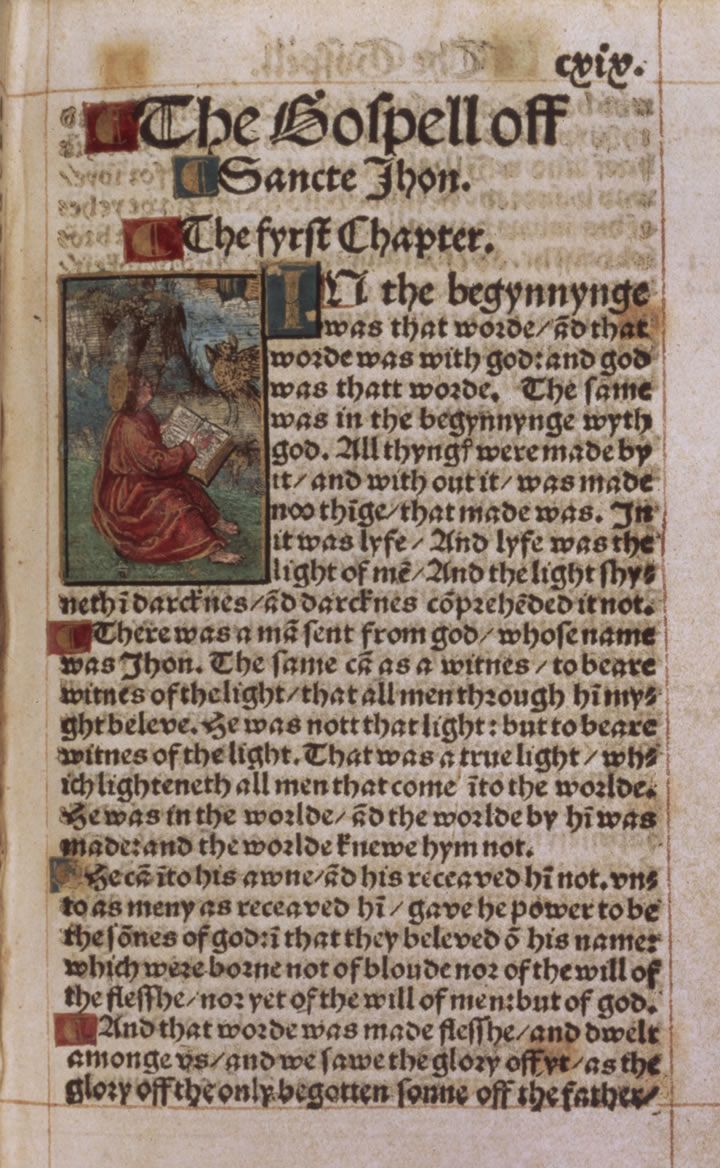steve_bank
Diabetic retinopathy and poor eyesight. Typos ...
The RCC always controlled the bible.
The Tyndale translation shows how it is impossible to know how translations actually relate to what really happened.
Translations are always biased.
The Tyndale translation shows how it is impossible to know how translations actually relate to what really happened.
Translations are always biased.

Tyndale Bible - Wikipedia
en.wikipedia.org
The Tyndale Bible (TYN) generally refers to the body of biblical translations by William Tyndale into Early Modern English, made c. 1522–1535. Tyndale's Bible is credited with being the first Bible translation in the English language to work directly from Hebrew and Greek texts, although it relied heavily upon the Latin Vulgate. Furthermore, it was the first English biblical translation that was mass-produced as a result of new advances in the art of printing.
The term 'Tyndale's Bible' is not strictly correct, because Tyndale never published a complete English language Bible; instead, a completely translated Bible was completed by Myles Coverdale, who supplemented Tyndale's translations with his own to produce the first complete printed Bible in English in 1535. Before his execution, Tyndale had translated the New Testament, the Pentateuch, and the historical books of the Old Testament.[3] Of the Old Testament books, the Pentateuch, Book of Jonah, and a revised version of the Book of Genesis were published during Tyndale's lifetime. His other Old Testament works were first used in the creation of the Matthew Bible and also greatly influenced subsequent English translations of the Bible.[4]
Reaction of the Catholic Church and execution
Tyndale's translations were condemned in England by Catholic authorities, where his work was banned and copies burned.[18] Catholic officials, prominently Thomas More,[19] charged that he had purposely mistranslated the ancient texts in order to promote anti-clericalism and heretical views.[20] In particular they cited the terms "church", "priest", "do penance" and "charity", which became in the Tyndale translation "congregation", "senior" (changed to "elder" in the revised edition of 1534), "repent" and "love", challenging key doctrines of the Roman Catholic Church.
Betrayed to church officials in 1536, he was defrocked in an elaborate public ceremony and turned over to the civil authorities to be strangled to death and burned at the stake. His last words are said to have been, "Lord! Open the King of England's eyes."[21]
Challenges to Catholic doctrine
Tyndale's translation of the Bible had notes critical of the Roman Catholic Church. The Catholic Church had long proclaimed that the only true Church was the Catholic Church.
The word church in Catholic teaching could only be used of the Catholic Church,[22] and there was no other organized religion in England at that time.
Some radical reformers preached that the true church was the "invisible" church, that the church is wherever true Christians meet together to preach the word of God. To these reformers, the Catholic Church was unnecessary, and its very existence proved that it was in fact not the "true" Church.[23]
